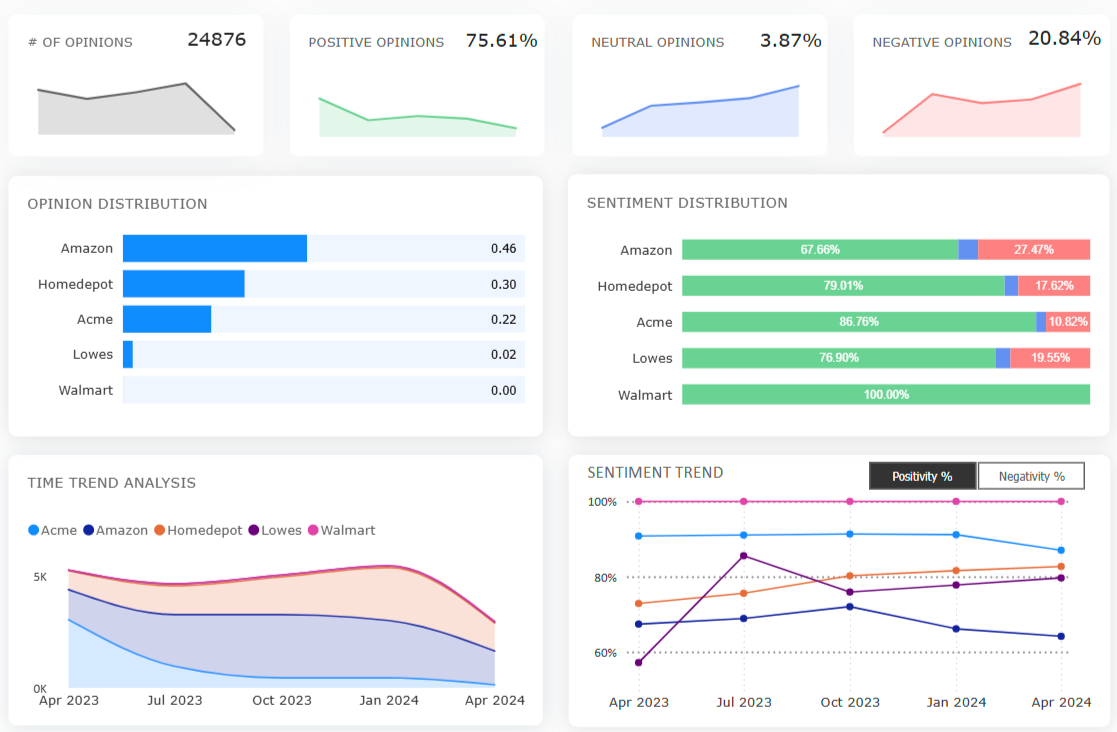🎉 Clootrack recognized by OpenAI for crossing 100 billion tokens in Voice of the Customer analytics →
Read the story


In a vast and ever-evolving marketplace, understanding your consumers has become paramount to delivering a remarkable customer experience. While the advent of technology has enabled businesses to gather a plethora of consumer data, the true capability lies within deciphering this information effectively. Enter consumer intelligence – the key to unlocking customer insights and enhancing your business strategies.
Consumer intelligence can be seen as a process of gathering, analyzing, and interpreting data to comprehend consumer behavior, needs, and preferences. By harnessing the power of consumer intelligence, businesses can make informed decisions, develop winning marketing campaigns, and ultimately deliver personalized experiences that resonate with their target audience.
Now, let's take a moment to imagine the interstellar robots CASE, TARS, and KIPP from the movie "Interstellar." Like these robots, consumer intelligence is an astute companion for businesses, providing them with the necessary tools and knowledge to navigate the uncharted realms of customer preferences.
CASE, known for its resourcefulness and significant customer data processing capabilities, helps businesses collect vast amounts of consumer data from internal and external sources. It tracks customer behavior, purchase history, and preferences across various touch points like websites, social media, and offline interactions. This data serves as the foundation for understanding the "what" of consumer intelligence.
TARS, on the other hand, does market research and acts as the analyzer and interpreter of consumer data. Its advanced algorithms and machine learning techniques help identify patterns, trends, and valuable insights buried within the mountains of raw data collected. TARS reveals the "why" behind consumer behavior – shedding light on customers' motivations, expectations, and pain points.

Finally, KIPP (Dr.Mann's companion robot) plays the strategist role. Inspired by the insights provided by CASE and TARS, KIPP facilitates decision-making processes. It helps businesses develop personalized customer experiences, create tailored marketing campaigns, and anticipate future consumer demands. KIPP's ability to transform consumer intelligence into actionable strategies is crucial for businesses aspiring to thrive in the marketplace.
Let's explore three factors that make consumer intelligence truly effective: AI & NLP technology, an innovative analytical framework, and the concept of human-machine partnership.

CASE, TARS, and KIPP possessed advanced intelligence, natural language processing (NLP) abilities, and the capability to understand and communicate with humans.
Similarly, AI and NLP technology within a customer intelligence system plays a vital role in capturing and interpreting consumer data. These systems can collect and analyze vast amounts of unstructured data from various sources like social media, customer reviews, and surveys, allowing businesses to gain deep insights into consumer preferences and sentiments.
Just as CASE, TARS, and KIPP worked together to analyze complex mathematical equations and explore new galaxies in "Interstellar," an innovative analytical framework within a consumer intelligence system helps businesses sift through terabytes of data and extract meaningful patterns and trends. Employing advanced algorithms and machine learning techniques, this framework allows businesses to identify consumer behavior patterns, understand market trends, and uncover new opportunities.
In "Interstellar," the robots' success depended on their partnership with humans. Similarly, a successful Consumer Intelligence System thrives on the collaboration between humans and machines. While AI and NLP technology can process and analyze vast amounts of data, human intuition, creativity, and empathy play an equally important role in interpreting the insights generated by the consumer intelligence system. Humans bring contextual understanding to the table, making connections and identifying potential areas for improvement. By combining the unique strengths of both humans and machines, a consumer intelligence system can provide a holistic view of consumer behavior, leading to more accurate predictions and effective strategies.
Building an effective Consumer Intelligence System involves:
Just as CASE, TARS, and KIPP aided the astronauts in their journey through space, an intelligence system empowers businesses to navigate the vast landscape of consumer data, uncover valuable insights, and optimize their strategies.
In our current business landscape, integrating consumer intelligence is essential for improving customer experience overall.
As our cosmic journey concludes, it is clear that a Consumer Intelligence System holds great power in revolutionizing the customer experience and customers. Businesses can connect the dots and truly understand their customers ' needs, preferences, and desires through the remarkable trio of AI & NLP technology, a smart analytical framework, and human-machine partnership.
So, channel your inner CASE, TARS, and KIPP, and embark on this interstellar adventure toward a cutting-edge Consumer Intelligence System that will propel your business to new heights and create unforgettable customer experiences.
Read more: AI-enabled Consumer Intelligence Enables Insights Professionals With Speed and Scale
Analyze customer reviews and automate market research with the fastest AI-powered customer intelligence tool.
